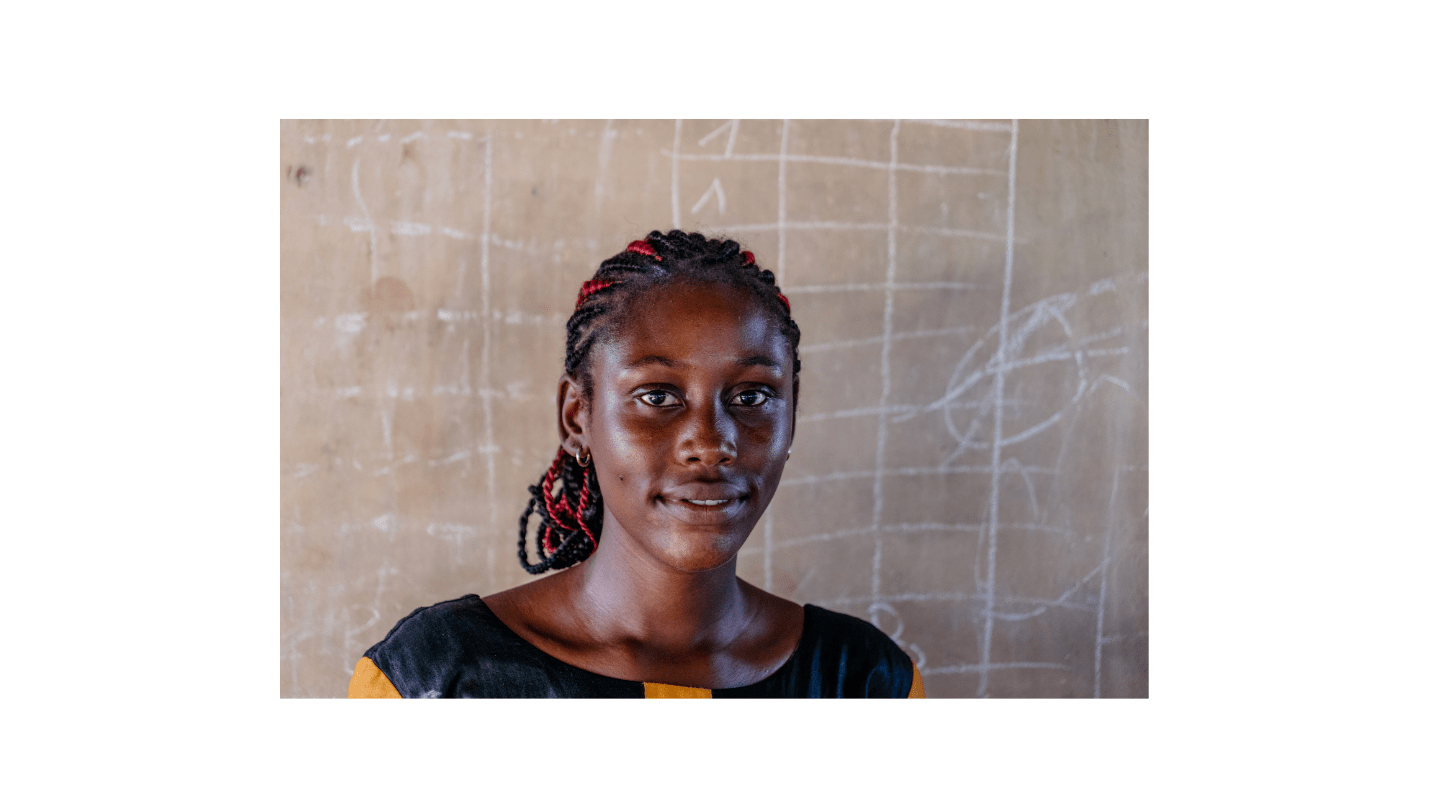Pétékan, Benin – On International Menstrual Hygiene Day, the spotlight turns to the transformative work taking place across West and Central Africa through the SWEDD project, particularly in communities like Pétékan in southern Benin. With the theme “Together for a Period-Friendly World,” this day highlights not only the importance of menstrual health but also the impact of programs that break the silence around periods and empower girls to understand their bodies.
One such initiative is the Safe Spaces and mentoring programme supported by UNFPA and funded by the World Bank. In Benin alone, more than 53,000 girls have taken part in these sessions—spaces where they can learn, speak freely, and build the confidence to shape their own futures.
For Alexandrie Amoussou, a 22-year-old apprentice tailor from the village of Zunta, these sessions have been life-changing. “Before, I was shy and avoided being around people,” she recalls.
“Now, I can talk in public, play with my friends, and share my ideas without feeling ashamed.”
Held at the local primary school in Pété-Camp, the sessions bring together around 30 young women for activities that include role-playing, open discussions, and interactive learning on topics such as menstrual hygiene, family planning, gender equality, and self-confidence. “It’s not like a regular classroom,” Alexandrie says. “Here, we learn from each other and grow together.”
Talking Periods Without Shame
For many girls, these sessions mark the first time they have openly discussed menstruation and reproductive health. “Before, I didn’t understand my periods or know what ovulation was,” Alexandrie admits. “Now, I know how to manage my cycle, how to take care of myself, and I understand the importance of spacing births.”
The sessions help demystify menstruation, providing girls with practical guidance on hygiene and how to track their cycles—essential knowledge often neglected due to taboos and lack of information.
Mentoring the Next Generation
Each Safe Space is led by a trained mentor—like Cécile Kounakpo, 27—who facilitates the sessions and serves as a trusted guide. Her presence not only creates a safe environment but also shows what empowered womanhood can look like in rural communities.
“The girls see themselves in me. And I see a future generation of leaders in them.”
These mentors are essential in fostering a culture of solidarity and resilience. By encouraging questions and sharing their own experiences, they create a space where menstruation, consent, and body literacy are normalized.
Rewriting the Future, One Girl at a Time
The SWEDD project aims to address root causes of gender inequality in West and Central Africa, including early marriage, limited access to education, and the lack of reproductive health services. Through Safe Spaces, the initiative equips adolescent girls and young women with the knowledge and self-confidence they need to take control of their futures.
“Understanding our bodies and rights helps us make better decisions,” Alexandrie says. “I want to share what I’ve learned with other girls who are still afraid to speak out.”
This International Menstrual Hygiene Day, Alexandrie's voice reminds us why investing in girls matters. By creating spaces where young women can learn, grow, and talk about their periods without shame, SWEDD is helping build a future where every girl can thrive—on her terms.
UNFPA and its partners continue to scale Safe Spaces across the region as a key strategy in empowering adolescent girls. To learn more about the SWEDD+ project, visit www.sweddafrica.org.


